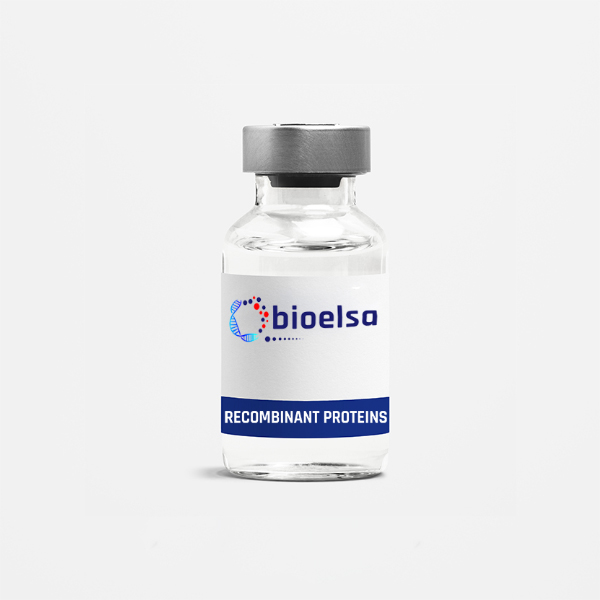| Gene ID |
16191 |
| Accession | P04401 |
| Alternative Name | IL-5, B-cell growth factor II, BCGF-II, Cytotoxic T-lymphocyte inducer, Eosinophil differentiation factor, T-cell replacing factor, TRF<br/>Recombinant Mouse Interleukin-5 (IL5) |
| Species | Mouse |
| Source | Insect cells |
| Description | Interleukin-5 is a specific hematopoietic growth factor that is responsible for the growth and differentiation of eosinophils. IL-5 promotes the growth of immature hematopoietic progenitor cells BFU-E while it causes differentiation of CFU-E the proliferation of which is inhibited by IL-5. IL-5 strongly stimulates the proliferation, cell activation, and differentiation of eosinophils. B cells can be made responsive to IL-5 by treatment with suboptimal doses of IL-1. Interleukin-5 also promotes the generation of cytotoxic T cells from thymocytes. In thymocytes IL-5 induces the expression of high affinity IL-2 receptors. In contrast to human Interleukin-5, mouse IL-5 also acts on B cells. It induces the proliferation of pre-activated B cells and their differentiation. High affinity and low affinity receptors for IL-5 are expressed in all hematopoietic and lymphoid cells.The low affinity receptor, CD125, has a molecular mass of 50 kDa (p60). The introduction of p60 into these cells generates a high affinity IL-5 receptor. The second subunit of the IL-5 receptor is identical with the larger subunit of the receptor for the colony stimulating factor GM-CSF (CD131). This subunit is involved also in the generation of a high affinity receptor for IL-3 and is being referred to as common beta. |
| Accession | P04401 |
| Functions | The ED(50) was determined by the dose-dependent proliferation of TF-1 cells was ? 0.2 ng/mL, corresponding to a specific activity of ? 6.0 x 10^6 units/mg. |
| Formulation | Recombinant Interleukin-5 was lyophilized from a 0.2 ?m filtered PBS solution. |
| Solubility | A quick spin of the vial followed by reconstitution in distilled water to a concentration not less than 0.1 mg/mL. This solution can then be diluted into other buffers. |
| Appearance | Lyophilized Powder |
| Molecular Weight | 13 |
| Purity | >95% as determined by SDS-PAGE |
| Concentration | <1.0 EU/μg of recombinant protein as determined by the LAL method. |
| Shipping Condition | Ambient Temperature |
| Storage Condition | The lyophilized protein is stable for at least one year from date of receipt at -70?C. Upon reconstitution, this cytokine can be stored in working aliquots at 2? - 8?C for one month, or at -20?C for six months, with a carrier protein without detectable loss of activity. Avoid repeated freeze/thaw cycles. |
